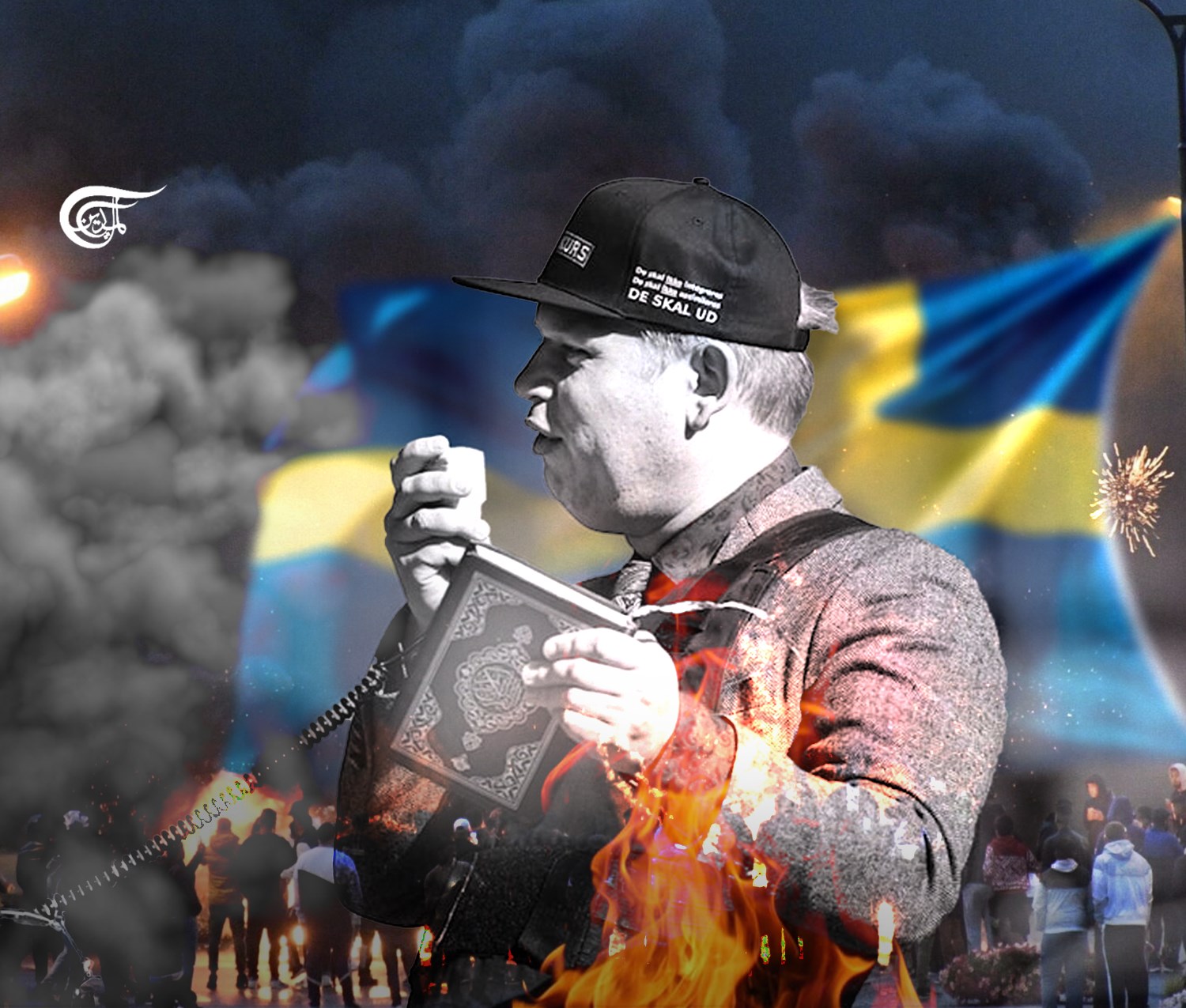Provocative Islamophobic Incidents in Sweden: A need for Inter-Faith Harmony and Peaceful Co-Existence
Amid rising Islamophobic attacks in the West, The western community must show unity and dedication to the values of peaceful and harmonious communities for the sake of humanity and should take steps to prevent such attacks.
-

Notably, 2019-2020 were marked by cold and brutal Islamophobic terrorist attacks in Christchurch, New Zealand, Germany, the United Kingdom, France, and Norway
Religion continues to be a major source of intolerance, prejudice, and marginalization worldwide. Rather than supporting peace and mutual tolerance, religions' activities in modern times have worsened fear, mistrust, and bad feelings among their respective followers. Moreover, the refusal of one religious or non-religious group to tolerate the beliefs and practices based on religious affinities has constantly jeopardized and threatened peaceful coexistence throughout the world.
Even though Muslims had lived in Sweden since the 1940s, the presence of Islam became noticeable in Swedish society for the first time in the 1980s. Muslim children began to enroll in public schools in higher numbers than before, and so forth. At the end of the 1980s, Sweden saw the formation of violent xenophobic groups and conservative Christian sects that targeted Muslims as a serious societal problem, forcing the country's economy to suffer a recession. Later on in the 1990s, the presence of Muslim children in Swedish schools had become expected, positive examples and personal connections with Muslims had risen for many non-Muslims, and several regulations had been amended to reflect the changing demographic reality. Since then, the number of Muslims has risen rapidly. Sweden is seeing an influx of immigrants from Muslim-majority countries. In the late 1990s and early 2000s, attitudes toward Islam and Muslims improved. Today's perceptions toward Islam and Muslims have improved, although prejudice was and continues to be prevalent. (Otterbeck, 2000).
Sweden has always been a compassionate safe haven for immigrants In 2015, Sweden received a record-breaking 162,877 asylum applications, largely from Syria, Iraq, and Afghanistan, roughly 1.6 percent of Sweden's ten million inhabitants. The migration of Muslims from war-torn nations has had a significant impact on politics and society in Sweden, which has become increasingly secular in recent decades. The Sweden Democrats, a right-wing populist party that was formerly formally outlawed due to ties to neo-Nazis when it was founded in 1988, is currently Sweden's third-largest political party. It has successfully crafted a narrative linking the influx of primarily Muslim immigrants to an increase in violent crime and perceived strains on Sweden's vaunted welfare system. Sweden Democrats believe that crime and integration difficulties are caused mostly by shortcomings in socioeconomic policy and government bureaucracy; rather, they blame culture, both of Muslim immigrants and of political correctness. (Tomson, 2020).
Recent islamophobic incidents worldwide show that religion is linked to greater fear, hostility, prejudice, and discrimination in almost every part of the globe. It's almost hard to watch the news without seeing religious intolerance and violent episodes, which have grave ramifications for societal harmony. More specifically, growing Islamophobic incidents and religious intolerance have posed a severe threat to world peace and harmony globally.
Most melee and verbal attacks, anti-Muslim hatred, racism, xenophobia, anti-Shari'ah policies, high-profile terrorist attacks, and growing trends of far-right or right-wing extremists are the fallout of religious intolerance as reflected in most melee and verbal attacks, anti-Muslim hatred, racism, xenophobia, anti-Shari'ah policies, high-profile terrorist attacks, and growing trends of far-right or right-wing extremists. As a result, Muslims have become targets of discrimination and violence.
Similarly, it exposes that Islamophobia and religious intolerance have increased attacks on muslims, eternal loss of life, willful destruction of property, violations of Muslims' fundamental rights and freedoms, increased dread of insecurity, and mistrust between muslims and non -muslims.
Recently, in southern Linkoping, Sweden, Rasmus Paludan, the Danish head of the far-right Stram Kurs (Hard Line) Party, burned a copy of the Holy Quran. Moreover, during extreme rallies, Paludan also threatened to burn copies of the Quran. The event clearly showed the racist and xenophobic worldview, and their actions went against all accepted civilized society norms and principles.
Notably, 2019-2020 were marked by cold and brutal Islamophobic terrorist attacks in Christchurch, New Zealand, Germany, the United Kingdom, France, and Norway. Mosques have been attacked across Europe, resulting in deaths and injuries.
Furthermore, the rapid spread of Islamophobia and religious intolerance is a critical concern that requires constant inquiry to mitigate the risks. Therefore, it is necessary to criticize Islamophobia and religious intolerance openly. World leaders should be sanctioned for making official utterances that can fuel hate crimes, flames violence, and, as a result, jeopardize the lives of individuals or groups of Muslims.
Although, some European governments are making strenuous efforts to track down and neutralize far-right terrorist organizations. On the other hand, discriminatory statements, bills, and security practices aimed at Muslims contribute to the normalization of Islamophobic conversations in Europe. Furthermore, the mainstream media and private organizations are to blame for anti-Muslim sentiments since they continue to promote false information that affects the Muslim community.
These senseless, inflammatory Islamophobic events serve no purpose other than to aggravate the sensitivities of Muslims around the world. Moreover, such actions are not protected by legitimate expressions of the right to freedom of expression or opinion, which entail obligations under international human rights law, such as the requirement not to engage in hate speech or encourage violence. The Swedish government should step in to prevent any acts that incite religious sentiments.
Surprisingly, the unfortunate growth in global hostility toward the Islamic faith and Muslims is largely reflected in the widespread dissemination of negative narratives about Islam in the mainstream media, literature, and public discourses. As a result, the rapid expansion of Islamophobia and religious intolerance is a serious worry that requires ongoing investigation to limit the threats. Therefore, outright criticism of Islamophobia and religious intolerance is required.
Sweden must be questioned and held accountable by the United Nations and relevant international human rights and humanitarian organizations for serial violation of human rights. The western community must show unity and dedication to the values of peaceful and harmonious communities for the sake of humanity and should take steps to prevent Islamophobic attacks. Specifically, the world community must unite in its opposition to xenophobia, intolerance, and incitement to violence based on religion or belief and collaborate to promote interfaith harmony and peaceful coexistence. They must pay attention to Muslim feelings worldwide and take action to prevent Islamophobic attacks.
To preserve lives and maintain peace and order in society, western governments must safeguard members of Muslim communities from intolerance and prejudice by providing essential and effective security support to Mosques and worshippers. Religious leaders and scholars play an important role. Instead of fueling religious bigotry, violence, and extremism by their extremist beliefs, religious leaders should preach peace, tolerance, and love (Dauda, 2020).

 Ruqiya Anwar
Ruqiya Anwar
 6 Min Read
6 Min Read











